HIT CHANNEL EXCLUSIVE INTERVIEW: November 2023. We had the great honour to talk with a legendary musician: Jorma Kaukonen. He is best known as a founding member of Jefferson Airplane. He and Jack Casady (Jefferson Airplane -bass) have been playing as Hot Tuna for more than 50 years. Since the ‘70s, he has also released many solo and collaborative albums. In 2021 he released “The River Flows Volume 1” with John Hurlbut, followed by “The River Flows Volume 2” the next year. Read below the very interesting things he told us:
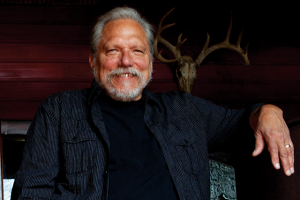 Are you enjoying the final Electric Hot Tuna tour?
Are you enjoying the final Electric Hot Tuna tour?
Yes, right now, we did five weeks (ed: of touring) and we finished about three weeks ago and it was a really good time. Of course, it’s always good to get together with your friends. We were rehearsed and well-prepared and next week we have our three final electric gigs, two of those will be at the old Fillmore in San Francisco and one will be in Denver.
There will be Acoustic Hot Tuna shows next year but no more Electric ones. Did you get tired of electric music?
No, I’m not tired of electric music, but to be honest with you, it’s just not as close to my heart as the acoustic music. I play acoustic guitar all the time, but I never really touch electric guitar except like when I am with the band. So, any time I get to play music is always fun, but I think for me, just in my life, the acoustic music is a little more multi-dimensional, if that makes sense.
How emotional was it for you to play at your 80th birthday concert at the Carnegie Hall?
It was awesome! You know, I’ve been very lucky because I’ve been very healthy all my life, I’m going to be 83 years old next month. I think we played Carnegie Hall back in the ‘70s with Hot Tuna and I played the small acoustic hall (ed: Zankel Hall, a small hall at the Carnegie Hall) with my friend, Barry Mitterhoff, but Carnegie Hall is not like a rock hall, it’s nothing about it, it’s like playing an opera house or something.
During the lockdowns you were busy doing the Quarantine Shows. Did you expect that they would be so successful?
No, of course Covid changed everything for us, here in the States, as I am sure it did for you over there. I was out of work, nobody was touring, but I’ve got an old theatre of my own, here at the Fur Peach Ranch, and we have a production place, we have internet connection and we figured: “We’ll just do weekly concerts and they will be free”. It was really an amazing thing for us, because we couldn’t travel, but it just made us feel that it was still possible to get out to the world.
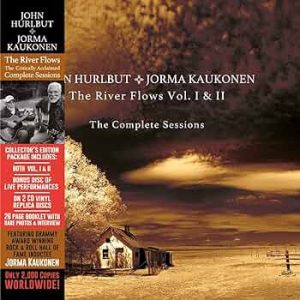 How did you come up with the idea to make two albums with your ranch manager John Hurlbut?
How did you come up with the idea to make two albums with your ranch manager John Hurlbut?
Johnny and I have been friends for over 40 years and again thanks to the quarantine, one of the mixed feelings of the quarantine was that we were spinning around the ranch with nothing really to do and we always brought our guitars, make them to work and we just started playing. I have a little studio here, also, and I just thought: “You know, we are going to make a record and we are gonna do it live, no overdubs or anything like that”. That’s how we did those two records. Actually, we cut enough songs for both of those records in 2 ½ days. Earlier this year, we just did a third one that it will be out till next year.
How spontaneous was your playing on “The River Flows” albums? Did you rehearse a lot before recording them?
No. One of the things that I like about what I’ve done with Johnny over the years, is that I don’t really work things out. You know, when I am doing Hot Tuna or I’m solo, obviously I’m sort of the driving force of the music in general: I need to play the songs the way they go. When I was playing with Johnny on “The River Flows” I could approach it much like I did with Jefferson Airplane, a lifetime ago, where I was just playing rhythm guitar stuff and it’s exciting to find things that work.
How challenging was it for you and John to choose the songs you covered on “The River Flows” albums?
Ok, that was another thing that was really fun for me, too. Johnny has a very eclectic taste in music and I just let him choose the songs. I don’t think he brought a song to me that I didn’t like. Obviously, we had more songs than we needed, and we just started out playing things that were fun and wound up recording them.
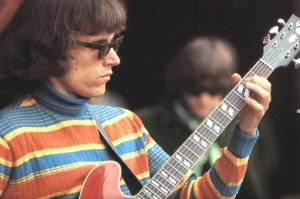 I love “Someone’s Calling” from “The River Flows Vol.1”. Could you please tell us a few words about the great song that John Hurlbut wrote?
I love “Someone’s Calling” from “The River Flows Vol.1”. Could you please tell us a few words about the great song that John Hurlbut wrote?
So, Johnny’s father passed away -I can’t remember which time he did, I guess 5 or 6 years ago- but we were working in Hawaii probably right after that and he was staying at a friend’s house way upon the water. He was by himself and his mother recently passed away and then he wrote that song, which I think is a beautiful song. So, when we got a chance to record it, it was just perfect. His mum’s name was Lucy, and that’s part of my daughter’s little names, too. We named her after John’s mum.
Please tell us about your next album with John Hurlbut.
So, again, we are approaching things as we did the first two. Basically, he just brings me the songs and we start playing them until the pieces fall into place and then we got the chance to record them. Very casual, no pressure, no ego conflicts. I mean, it was a really joyful artistic experience to me and I hope to Johnny, too.
I am a huge fan of the “Song for the Fire Maiden” (from Hot Tuna’s “Yellow Fever” -1975) you co-wrote with Greg Douglass. How did this song come about?
It’s a long time ago, so I can’t remember exactly how I wrote the song, but we worked with Greg Douglass for a while, back then. Greg was playing in Los Angeles, he was a great guitar player, and “Song for the Fire Maiden” had a lot of energy. It’s so long ago, I can’t really tell you how the words and writing worked, but I remember I had some basic ideas for the tune and Greg right on he would go and do his cut. It was very easy how we‘ve done the cut.
How much has your approach to guitar changed over the years?
Oooh. That’s a really good question and it’s not an easy one to answer. I know so much more about music that I’m playing than I did back then. But being in the state of artistic ignorance when I was younger, it helped me to come up with things that were maybe a little out of the ordinary, because I didn’t know so much about going according to the rules of music, etc. So, I think I played electrically, my guitar playing, because the music demanded it: It was certainly very high energy. But these days I think more about composition than guitar tricks.
You have said that as you are getting older as a musician you find yourself following more rules. Is this helpful or restrictive?
It just happened, because we change over the years and that’s the way things have evolved. I don’t really think it’s restrictive, because I just don’t think of the idea and I’m sure it’s a good thing. I just didn’t think of the idea a lifetime ago. In some respects, I think that I’m presenting more with templates instead of a structure as a songwriter and that’s ok, because then I can really concentrate on the words. For example, I found we wouldn’t write a song today like “New Song (for the Morning)” which belonged to the first Hot Tuna record (ed: “Hot Tuna” -1970) : It has all those different parts. I just wouldn’t write a song today with so many parts. I don’t know about next year, but not today. I am not thinking in terms of structure -it’s not that I’m cowed by the numbers- but it makes it easier to focus on my lyrical content.
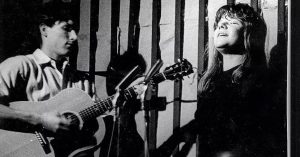 You finally officially released “The Legendary Typewriter Tape” with Janis Joplin. What’s the story behind this historic recording?
You finally officially released “The Legendary Typewriter Tape” with Janis Joplin. What’s the story behind this historic recording?
I met Janis in 1962 when I first moved to California. Nobody had cars back in those days. So, San Francisco was only 50 miles away (ed: from San Jose), but it wasn’t easy to go there. They took a whole day on the bus, etc. Nobody really had any money. We met each other at a hootenanny in 1962 and we became friends. So, whenever she would come down to the peninsula -I lived in San Jose, she lived in San Francisco- she couldn’t afford to bring a guitar player with her, so she would call me up and I would come out and be honoured to play with her. Well, she had a gig in San Francisco at a bar called The Coffee Gallery on Grant Avenue, in Northeast, but we needed to rehearse. So, she came down to San Jose to rehearse. My ex-wife Margareta, she was from Sweden and she was writing a letter home (ed: on typewriter). I had at this time a tape recorder and I kept recording everything. It was a mono Sony tape recorder and Janis was there. I turned the tape recorder on when we started playing. I don’t think we thought about anything other than trying to rehearse the songs. We certainly didn’t think that a lifetime later those rehearsal tapes would ever become a record.
When you first met Janis Joplin could you imagine that she would become a rock star?
The first time I met her I didn’t think she was a rock star. Of course, I didn’t think anybody was a rock star then. I considered myself an acoustic blues musician. I thought she was one of the greatest blues singers I had ever heard in person and I knew, of course none of us had any idea what would happen, but I knew she was gonna be one of the great ones.
Writing your autobiography “Been So Long” was a creative experience too. Was writing a book as exciting process for you as it is the writing of a new song?
Actually, I think in some respects it was more exciting because I learned to write and not be self-conscious. You know, writing prose or whatever, is not the same thing as writing a song, but it made me not self-conscious about anything I did or probably I was going to do and that was an incredible experience.
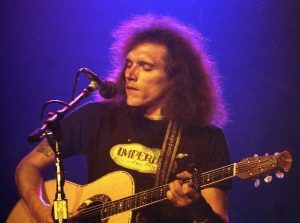 I read in your book that you bought a Rickenbacker 12-string guitar because you loved Roger McGuinn’s (The Byrds) sound. What’s so special about this guitar?
I read in your book that you bought a Rickenbacker 12-string guitar because you loved Roger McGuinn’s (The Byrds) sound. What’s so special about this guitar?
That’s an interesting thing: I’m not a 12-string guitar player. Roger McGuinn is certainly one of the most innovative guys, especially with the Rickenbacker 12-string. So, when Airplane started Paul Kantner (guitar), who loved Roger’s playing said: “You ‘d go and get a 12-string guitar” and so I bought a Rickenbacker like Roger’s. I had it and played it on the first album (ed: “Jefferson Airplane Takes Off” -1966) but I was feeling it was not my thing. Now, I remember to see Cream on their first gigs in the United States, in San Francisco and they were playing the Fillmore and I went to see them and of course they were unbelievable and I realised at that moment that the 12-string guitar is not for me. I went back to my apartment, I threw it and got rid of such kind of guitar.
Also in your book you mention that Mike Bloomfield (The Paul Butterfield Blues Band, Bob Dylan) helped you in playing electric guitar not just an amplified one and that you once lent him your Guild Thunderbird for a show. What exactly did you learn from Mike Bloomfield?
Mike really is my teacher to electric guitar playing. I had never really done it before. He was very-very enlightening about sharing how to bend strings with hand. We didn’t have tutorials back in those days, so I learned how to sustain notes by overdriving the amplifier. I think he had a Les Paul Goldtop. He broke the neck part at a gig at a university down the peninsula, in San Francisco and I lent him my Thunderbird. I remember he didn’t like the guitar very much because it was a different guitar, but he sounded exactly like Mike Bloomfield.
Could you describe to us your reaction when you watched Cream playing at the Fillmore for the first time?
It was a big deal. It’s funny because we ‘ve got some dates coming up at the Fillmore next week. The Fillmore today is in total a 1.000-seat hall and it has a stage, a PA and all that kind of stuff. The Fillmore Auditorium back in those days, the stage was maybe -oh, gosh!- half meter tall and the PA was like the same kind of PA they would have at a gym for a basketball game. I mean, it was so primitive by today standards, but it was so exciting.
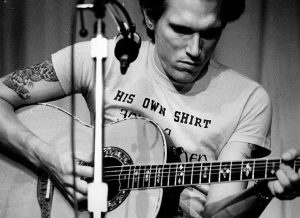 One of my heroes, Levon Helm (The Band –drums) played drums on two of your songs from “River of Time” (2009) album. Did you have a good time playing with Levon?
One of my heroes, Levon Helm (The Band –drums) played drums on two of your songs from “River of Time” (2009) album. Did you have a good time playing with Levon?
Levon was one of my heroes, also. He was one of the most interesting drummers ever. We were recording at the studio in Woodstock, that’s also his home. So, for him to come on over and play a couple of songs was just pure magic.
“Embryonic Journey” from “Surrealistic Pillow” (Jefferson Airplane -1967) is probably your signature song. Please tell us everything we should know about this song?
So, “Embryonic Journey” was the first musical piece that I created. I was giving a workshop at the school that I was graduated from, the University of Santa Clara. I just learned about drop D and I was messing around and one of my friends fortunately, had a little tape recorder and recorded it and after the workshop was over he said: “That’s almost a song. You should finish it”, so I did finish it. Anyway, fast forward to “Surrealistic Pillow”, I remember I played it for a producer, Rick Jarrard (ed: Harry Nilsson, Jose Feliciano) and he said: “You have to record that song” and I said: “No, this is a rock album. There is no place for this”. He insisted: “You need to record it!” When I recorded that, it was done at maybe two takes. I was so honoured that he made me do that. It’s so glad.
How important was the influence of Reverend Gary Davis on you?
I was in the beginning as a younger player. I learned so much from Reverend Davis’ stuff. I never took lessons from him, but I got the chance to hear him live and listen and know his records, etc. I’m not a Reverend Gary Davis specialist. Reverend only played with two fingers of his right hand, I play with three, but he was such a sophisticated American musician and I think I learned so much from him, just about the way he used the chord shapes and there is always so much joy in his music. Even though, there is a potentially depressive song like “Death Don’t Have No Mercy”. It’s always self-embarrassment. The sun is gonna rise.
Did you feel a bit surreal when Muddy Waters opened for Jefferson Airplane at the Queen Elizabeth Theater in Vancouver?
That was beyond surreal. I remember thinking how unbelievably wrong it was, at that time. We were just talking about that gig recently and of course Muddy was one of the giants to me, so it was unthinkable that he should be opening for us. But he was a gracious gentleman. Again, it was one of the great honours in my life.
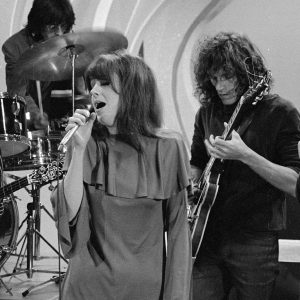 Your solo in the end of “The Other Side of This Life” from “Bless Its Pointed Little Head” (1969) live album is unbelievable. What influenced your playing on this?
Your solo in the end of “The Other Side of This Life” from “Bless Its Pointed Little Head” (1969) live album is unbelievable. What influenced your playing on this?
So, at “Bless Its Pointed Little Head”, the Jefferson Airplane, we were in peak form. We were working a lot, we were really playing well and I’m so glad about it. I don’t want to say this because it’s one of our albums, I think it was one of the great live albums. The chemistry we had at the band at that time was just unbelievable; we were almost like telepathic and with that in mind I just found where my bandmates would need me as a person.
I mean, your solo in “The Other Side of This Life” in incredible. I listened to it many times the last few days and it’s truly amazing!
Also, consider this: Jack and I were chasing each other’s tails, when he is behind he was definitely playing with me. So, whenever you hear me at this solo, he’s got at least 50%.
I think “Bless Its Pointed Little Head” (1969) is one of the best live albums ever. Do you think it captures the true atmosphere of a Jefferson Airplane concert?
Yeah, I agree with you.
Do you have any memories from Woodstock?
Woodstock, I realise it’s an iconic gig, but we were on like 20 hours late and the equipment didn’t work right. I mean, if we were at a gig like that today, we would say: “What a horrible gig!”, but back then… I will never be in front of 500.000 people again and that was an incredible experience.
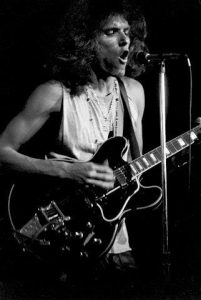 Your friend, David Crosby, passed away earlier this year. Would you like to tell us a few words about him?
Your friend, David Crosby, passed away earlier this year. Would you like to tell us a few words about him?
David and I were friends way before the rock ‘n’ roll thing it happened. He was one of those guys: He was always that David Crosby. The way he looked at chord shapes and harmonies was just so different. He was such an atypical folk musician and such an atypical rock musician. He could be a difficult person, personally, but a lot of that had to do with the fact that he knew exactly who he was and what was that he wanted to accomplish. I remember towards the end of his life we were talking. I was working down where he lived and I wanted to get together but he said: “I would love to see you, but time is getting short. I need to finish the work, I need the studio”. So, we didn’t get together, but he did all kind of incredible recording right up to the day he died.
Do you think popular music which was written in the ’60 and ‘70s is much better than today’s music?
That’s really an almost impossible question to answer. I am just gonna say that and it’s strictly my opinion: I think the electric rock music was in its creative infancy at that time. So, of course everything was new at some level and it seems to me, looking back, because of the way music and art were incredibly intertwined with the social events of the time, a lot of the lyrics reflect that. I just don’t see that on the same level today. I have to ask my daughter who probably disagrees with me. There are great musicians today, there are great sounds and rhythms but it just doesn’t seem as relevant. I know maybe I shouldn’t say that now.
Did you have a good time when Jefferson Airplane, Santana and Grateful Dead jammed together at the Family Dog in 1970?
That’s funny, I was just checking out some of the footage recently. I mean, at the time we were just three local bands that knew each other and enjoyed playing together, but looking back at it (laughs), it’s like a magical show. Yeah, it was a great time.
You recorded with your tape recorder an incredible version of Grateful Dead’s “Feeback” song at the Santa Clara County Fairgrounds in San Jose in 1968. Did you like their playing in that particular song?
Yes, of course. The Grateful Dead were such an interesting musical entity, but going back that far, they hadn’t really become this hyper-sophisticated Grateful Dead that we come to know, but there was something special about them. The answer is: “Yeah”. What a great show!
 In your book you called Bob Weir (Grateful Dead –guitar) a man of wisdom both in life and music. Could you explain it to us?
In your book you called Bob Weir (Grateful Dead –guitar) a man of wisdom both in life and music. Could you explain it to us?
Sure, he is just an interesting guy. Time goes on… Because Jerry (ed: Garcia) was so much the focus in the Grateful Dead as a guitar player, it’s easy as you were paying attention to him, to overlook how important and creative Bob Weir’s rhythm guitar playing was. Also, he is much more outspoken today than he was back then, but he is a really smart guy. He is just saying senseful things all the time.
Are you happy with the comeback of vinyl records?
I’m dead happy about the comeback of vinyl records! I just put together a vinyl stereo recently and John and I, we are doing all our projects together on vinyl and I ‘m so glad for this. Yeah, I’m thrilled that vinyl is back!
Is it a coincidence that all the bands from San Francisco had very strange names: Jefferson Airplane, Big Brother and the Holding Company, Strawberry Alarm Clock, Grateful Dead?
I think it was just our time for that. I mean, band names before that like Buddy Holly & The Crickets, great band, don’t get me wrong, but I think when the time came to name bands we wanted to step ourselves aside from this sort of traditional band-making process that part of rock bands did before. Also, San Francisco was a wacky place back then. It was like: “You can’t be the Jefferson Airplane, you should be the Cat Speedos or whatever”. People just came up with all kind of name stuff in America.
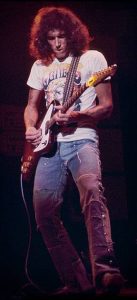 Were you shocked by the events at the Altamont in 1969?
Were you shocked by the events at the Altamont in 1969?
Of course, you know, Altamont was a disaster. It was shocking, but it should have been. Because the place was horrible; it was a disastrous way to happen. I had nothing to do with the planning. I remember when we pulled up, before we played, it was wrong. The vibe was wrong. We knew that there is gonna be trouble. We didn’t know what kind of trouble but we knew it won’t be good.
Did you like John Cipollina (Quicksilver Messenger Service) as a guitar player?
Yeah, I loved John as a guitar player. One of the most really innovative guitar players. He liked to play with fingerpicks but he was not a fingerpicker if you know what I mean. His sound, all those sorry notes that he was playing, the way he interacted with bands… There was nobody like him. Nobody.
A huge “THANK you to Mr. Jorma Kaukonen for his time. I should also thank Mrs. Cash Edwards for her valuable help.
Hot Tuna official website: https://hottuna.com/
Hot Tuna Jorma Kaukonen Fan Club Facebook group: https://www.facebook.com/groups/7267514369
Jorma Kaukonen official website: https://jormakaukonen.com/
Fur Peace Ranch website: https://furpeaceranch.com/

